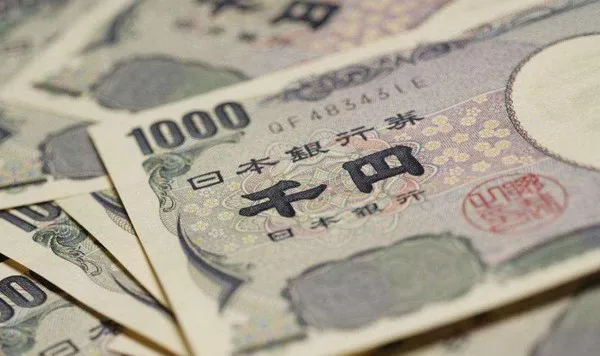In the realm of global finance, exchange rates play a pivotal role in facilitating international trade and investment. For travelers, investors, and businesses alike, understanding exchange rates is crucial for making informed decisions. In this article, we delve into the current exchange rate between the Japanese yen (JPY) and the Singapore dollar (SGD), specifically focusing on what 10,000 yen translates to in Singapore dollars.
The Dynamics of Foreign Exchange Markets
Foreign exchange (forex or FX) markets operate 24/7, facilitating the buying and selling of currencies worldwide. Exchange rates, which represent the value of one currency in terms of another, fluctuate constantly due to various factors such as economic indicators, geopolitical events, and market sentiment.
Central banks, financial institutions, corporations, investors, and individual traders all participate in the forex market, seeking to capitalize on currency fluctuations for profit or to mitigate risks associated with international transactions.
Factors Influencing the Yen-SGD Exchange Rate
To comprehend the current exchange rate between the Japanese yen and the Singapore dollar, it’s essential to consider the factors influencing their respective economies:
Monetary Policy: Both the Bank of Japan (BOJ) and the Monetary Authority of Singapore (MAS) formulate monetary policies to achieve domestic economic objectives. Interest rate decisions and quantitative easing measures can impact currency valuations.
Economic Indicators: Key economic indicators such as GDP growth, inflation rates, employment data, and trade balances provide insights into the health of each country’s economy, influencing investor sentiment and currency demand.
Trade Relations: Bilateral trade relations between Japan and Singapore affect the demand for each other’s currencies. Trade surpluses or deficits can exert pressure on exchange rates.
Market Sentiment and Speculation: Investor sentiment and speculative activities in the forex market can lead to short-term fluctuations in exchange rates, driven by factors such as risk appetite, geopolitical tensions, and market expectations.
Current Exchange Rate: 10,000 Yen to Singapore Dollar
As of the latest data available, the exchange rate between the Japanese yen (JPY) and the Singapore dollar (SGD) stands at 0.0090. Therefore, 10,000 yen is equivalent to 90 Singapore dollars.
It’s important to note that exchange rates are dynamic and subject to change within seconds due to market volatility and trading activities. Traders and investors often monitor real-time exchange rate movements using financial news platforms, trading terminals, and forex brokerage services.
Implications for Travelers and Businesses
For travelers planning a trip from Japan to Singapore, understanding the exchange rate allows for better budgeting and financial planning. Converting yen to SGD at favorable rates can result in cost savings during travel expenditures.
See Also:Current Yen Exchange Rate: What is 1000 Yen in Pounds?
Businesses engaged in international trade or investment between Japan and Singapore must also consider exchange rate fluctuations. Fluctuations in the yen-SGD exchange rate can impact the profitability of export-import transactions, affect the competitiveness of goods and services in foreign markets, and influence strategic decisions regarding hedging strategies.
Mitigating Exchange Rate Risks
To mitigate exchange rate risks, businesses and investors employ various hedging techniques, including:
Forward Contracts: Entering into forward contracts allows parties to lock in an exchange rate for future transactions, providing certainty amidst currency volatility.
Currency Options: Currency options provide the right, but not the obligation, to exchange currencies at a predetermined rate on or before a specified date, offering flexibility to capitalize on favorable exchange rate movements while limiting downside risks.
Natural Hedging: Operating expenses and revenues denominated in the same currency can act as a natural hedge against exchange rate fluctuations, reducing the need for external hedging instruments.
Diversification: Diversifying business operations across multiple markets with different currency exposures can help mitigate concentration risk and reduce vulnerability to adverse exchange rate movements.
Conclusion
The exchange rate between the Japanese yen and the Singapore dollar is influenced by a myriad of factors, including monetary policies, economic indicators, trade relations, and market sentiment. Understanding the current exchange rate is essential for travelers, investors, and businesses engaged in cross-border activities.
As of the latest data available, 10,000 yen is equivalent to 90 Singapore dollars. However, exchange rates are subject to fluctuations, necessitating vigilance and risk management strategies to navigate the dynamic forex market effectively.
By staying informed about exchange rate developments and implementing appropriate hedging mechanisms, individuals and businesses can mitigate currency risks and optimize their financial outcomes in an increasingly interconnected global economy.
Related Topics:
Current YEN Exchange Rate: What Is 15,000 Yen to USD?
Current Yen Exchange Rate: What Is 12000 Yen to USD?
Current YEN Exchange Rate: What Is 10,000 Yen to GBP?




























